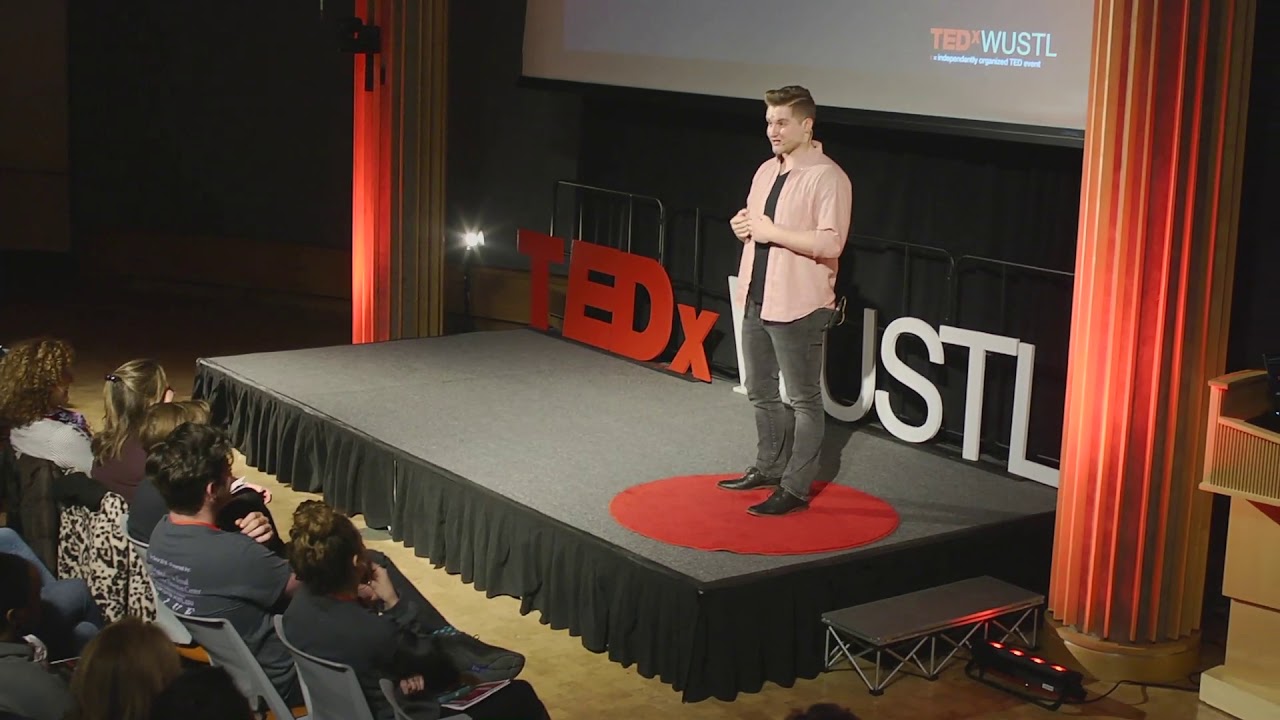It’s never ‘just business’: Values-based, data-driven innovation at Olin and beyond
- May 13, 2019
- By WashU Olin Business School
- 4 minute read

When we think about innovation, a lot of business-school buzzwords come to mind.
“Tech,” “corporate shake-up,” “industry disruption”—the list goes on and on. Rarely, however, do we include words like “human,” “heart,” “connection,” or “understanding” among that list.
By failing to link innovation to its human-centric conception, we further the idea that business is logic and nothing more. Business is spreadsheets, go-to-market plans, careful research, and analytic approaches to engagement.
Max Klapow, LA 2021, is a psychology-neuroscience-philosophy and cognitive neuroscience double major from Birmingham, Alabama. Max joined the Bear Studios team as a strategy fellow in December 2018. He wrote this for the Olin Blog.
“It’s nothing personal,” we even say, “It’s just business.”
We’re quick to draw a dichotomy between logic and emotion. It makes sense; emotions seldom line up with the objective reality, so we’re hesitant to trust them.
But this separation has become extreme. Think how we assess skills in the workplace. There are the “hard skills”: spreadsheets, word processing, research abilities, and meeting quotas. Then, we have the “soft skills”: communication, teamwork, problem-solving and understanding the big picture. These so-called “soft” skills are, in fact, essential to making change to both the business world at large and the collaboration and innovation within in.
Emphasizing the human connection
First, however, we must recognize that innovation requires empathy.
In a world where technology is ubiquitous, solutions that offer humans more benefit are the key to engagement. It’s a wickedly simple concept. People want to like what they use. The hang-up, however, tends to lie in the approach.
This where human-centered organizations like Bear Studios, Two Ravens (where I interned last summer as an analyst), and the Skandalaris Center for Interdisciplinary Innovation and Entrepreneurship make an impact. Whether it’s regular team brainstorming at Bear Studios, design thinking seminars at Two Ravens, or venture opportunities and networks at Skandalaris, it’s nearly impossible to miss the emphasis on human connection in business.
It is not just small startups or student-run organizations that are capable of human-centric innovation. Large companies are comforted with this opportunities as well.
Max Klapow
Size may be a factor for the magnitude and ease by which companies innovate, but the capacity exists.
Where companies often misstep is in the front-loading and data collection processes. These two concepts have roots in both the philosophy of science and the scientific method itself. Getting in the habit of expending resources on the initial stages of problem-solving can do wonders for designing an effective and efficient solution.
That’s not to advocate that all problem solving should use the scientific method, but rather draw lessons from the approach. If we can start by defining a problem that needs to be solved and identify the assumptions required for the problem to exist, it might go a long way in developing a solution.
This is because we frequently jump in to innovation and problem solving by spitballing—throwing ideas against the wall and prototyping the ones that stick. It’s expensive, time consuming and often fruitless.
Why? Because it lacks empathy.
Empathy drives innovation
To be clear, empathy is not a complicated procedure that requires company-wide buy-in to be effective. It does not necessarily require extensive training or an immediate overhaul of processes. At its core, empathy asks us to acknowledge each other’s humanity.
In a corporate setting, this can be as easy as beta testing product based on its minimum viable experience, interviewing prospective buyers to understand their pain-points in engaging with your company or product, or grounding a solution in principles of human behavior.
It’s a wickedly simple concept that often eludes even the savviest businesses. Innovation requires empathy because empathy drives innovation.
Olin Business School shares this mindset. Olin’s values-based, data-driven branding promise encompasses both the numerical and relational aspects of business. Olin prepares students to arrive at innovative solutions to the most challenging business issues in a way that leverages both research and relationships.
Whether it’s collaborative case competitions within the classroom or student-run startups outside of the classroom, Olin’s students understand that innovation is more than just a numbers game.
For other companies and institutions, arriving at a point of human-centric innovation takes time and may seem unnatural. Companies exist to make a profit. This premise is simple, but its implications for vulnerability are incredible. Vulnerability means uncertainty.
For investors, for executives and particularly for the students planning to work in industry, we have to start becoming OK with not having all of the answers in order to be able to find them. That means education and organizations that emphasize connection.
If humans can innovate, companies can, too. We just have to be willing to see the bigger picture.
“It’s nothing personal, it’s just business,” creates a transactional view of business. Yet, business has always been personal. It has to be. We are and always will be inextricably tied with the numbers. Whether we can use them to innovate—along with our own humanity—is simply up to us.
Our Problem With Empathy
Before rejecting someone for their beliefs, start by asking why they value certain ideals.
Media inquiries
For assistance with media inquiries and to find faculty experts, please contact Washington University Marketing & Communications.
Monday–Friday, 8:30 to 5 p.m.
Sara Savat
Senior News Director, Business and Social Sciences

